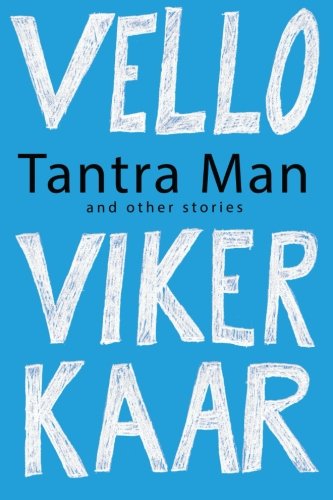Saturday, October 23, 2010
A Dying Breed
Saturday, October 9, 2010
The Onion Fair (без лука)
In the early 1990s, I heard a guy remark at a conference that Estonia offered a more sanitized, civilized way to experience Eastern Europe. “Like a drive-through zoo,” he said, “where you see the tigers from behind the safety of your car’s windshield. But in Russia,” he noted, “you have to actually climb into the cage with the animals.”
I thought he made a pretty good point that where tourism was concerned, Estonia offered a safe and secure way to taste the bizarreness of Russia. I’m not sure that’s true anymore.
This weekend, Liina, Robert, and I visited the Lasnamäe Onion Fair. I like Lasnamäe for its modern shopping centers, as well as for its tiny shops which aren’t much different than they were 20 years ago – you know, the kind which sell 80 varieties of vodka plus every kind of little seed or nut you can chew and spit on the ground. And so I thought the Onion Fair would be a little slice of Russia, picked up and re-planted behind the safety of my window glass.
The day began with promise, me practicing my language by shouting out the car window to some Russians. “Skazhitye pazhalyusta, gdye lukovaya yarmarka?” A man carrying a small child with a balloon pointed east and told us to follow the noise. Liina and I waved our thanks like goofy tourists, and I imagined a day with a dozen balalaika players singing songs with the words “maya tzerdse” or “a kakaya zhenshina” in every other chorus.
As we neared the noise’s source, I could make out the Estonian language over a loudspeaker. A song’s refrain rang “Du-du-dut-dumm.” Were we in the right place? But children were leaving the area carrying balloons, and how many festivals could there be on a single day in Lasnamäe?
Consumed by the spirit of things, we parked the car in a decidedly Russian fashion - paying no attention to street markings and hoping the parking police had been told to stand down for the day - and headed into the fair.
There were vendors selling sheepskins, bream, sausage, and goat cheese. A young woman in a booth dispensed literature about the health benefits of sea buckthorn in winter. Clean-cut young men at a booth marked UusMaa appeared to be counseling passersby on the benefits of life insurance. A very few onion vanikut hung from tent eaves, but there was no mad scramble to buy them.
“Izvinitye,” I hailed a woman behind a table stacked high with colorful plastic hair barrettes and other beauty accessories. “Gdye lukovaya yarmarka?”
“Siin samas!” she answered in fairly decent Estonian. Estonian? I craned my neck to look for language cops.
As I tuned my ear to the surroundings, I noticed no one was speaking Russian. The sea buckthorn sales pitch was in Estonian. Even the signs were in Estonian. There were no luka here at all. Only sibulad.
“I’m ready to go,” I announced to Liina. “There’s nothing of Russia here. It’s just some gariyachi estonski parni’s idea of Russia.”
Once, when shopping at a market in Kyiv, a middle-aged, heavyset woman stood behind her tomatoes and shouted, “I’m the ugliest woman in this entire marketplace, but I’ve got the best-looking tomatoes of all!” That was what I’d come to Lasnamäe to find: zhisn as lived by Russians. And the Russian dusha. All the Slavic emotions which cannot be had from a hospital-clean eurostate.
I wanted to see dark-eyed young men repairing wristwatches and calculators on top of overturned cardboard boxes. I wanted a line of women selling flower-print housedresses, sausage, and dried fish. I wanted pirated DVDs and CDs, like the rare copy of Eric Clapton’s Superbest I once discovered in a Moscow kiosk. But I got none of that in Lasnamäe. Someone had stolen my Little Russia and replaced it with ersatz.
“And now,” announced an Estonian voice from the stage. I looked up to find Erich Krieger. “Katyusha!”
I rushed forward to the improvised dance floor hoping to see veterans with medals pinned to their chests, who would sing of the grey steppe eagle and greetings from Katyusha. And babushkas, hair tied down with platki, who would sing of the bright sun and reach for the soldier on the far-away border. Instead, I found a small boy in black trackpants who kicked and gyrated as if he were having a seizure. Finally, two babushkas showed mercy and took the young man’s hands to form a circle of dance. An authentic khorovod perhaps, but it was too little too late.
I found Liina at the wig tent. She was trying on one with ears protruding from it which resembled exactly the mouse cap our four-month-old Robert wore. “You don’t wear wigs,” I said. “Let’s get out of here.”
“They’re not wigs, you fool. They’re hats.”
“Ersatz!” I charged. “A real Russian market would sell wigs.” But either way my fun was ruined. If babushkas had poured from the concrete block apartment buildings, locked arms, and performed a prisyadki, it would not have been enough.
“Let’s go to the Baltijaam,” I pleaded. Liina knew that what ailed me could only be cured with a cheborek served from a kiosk with questionable hygienic standards. Or a few ounces of kvass dispensed from a trailer, served in a community glass, carelessly washed by an indifferent salesgirl. I needed the real Russia. Or at least more convincing ersatz.
“Okay, let’s go,” she agreed, but not before turning to the wig salesman. “Skolka stoit?”
“Nelisada,” he replied with a look in his eye like he sold them all day at that price.
Liina put the hat back on the table. “Come on,” she said loudly enough to be sure the salesman could hear. “I know a great wig shop at the Baltijaam.”

